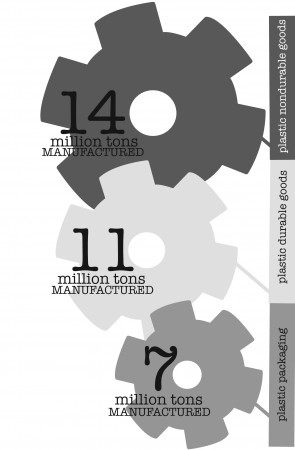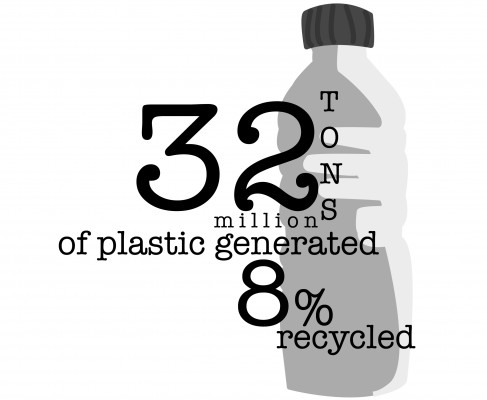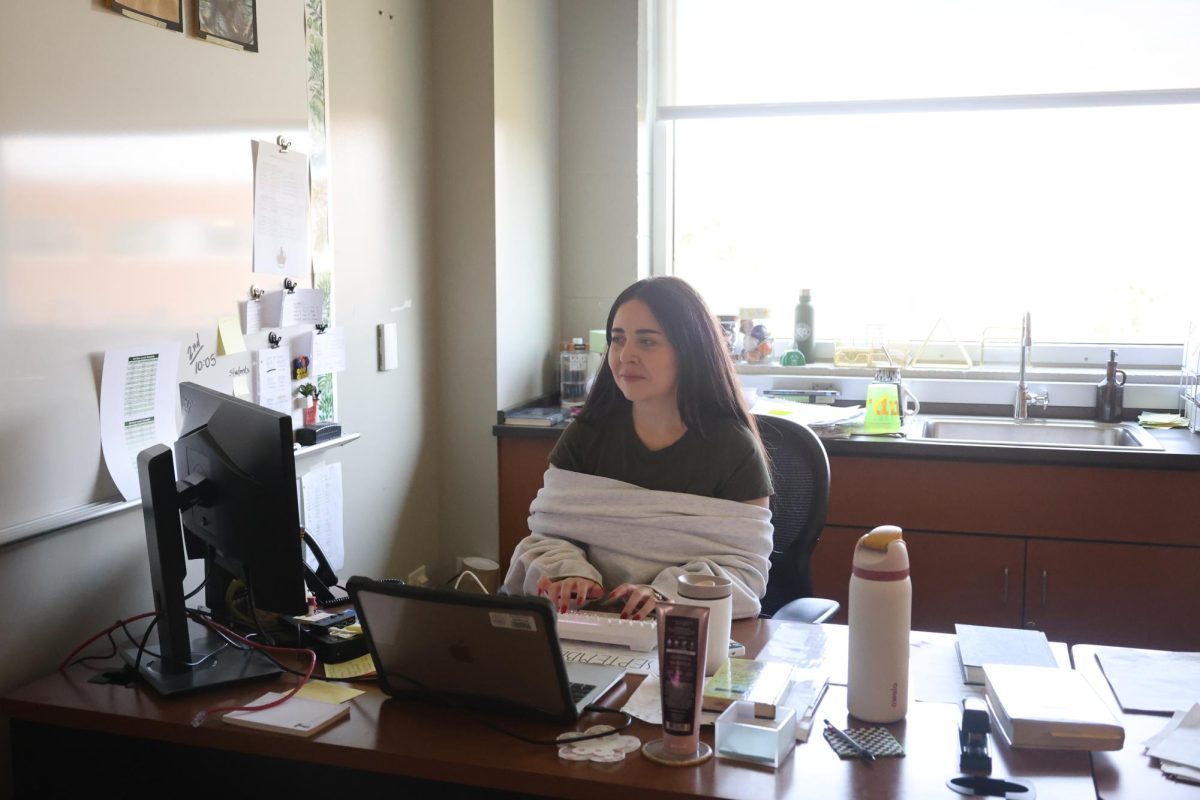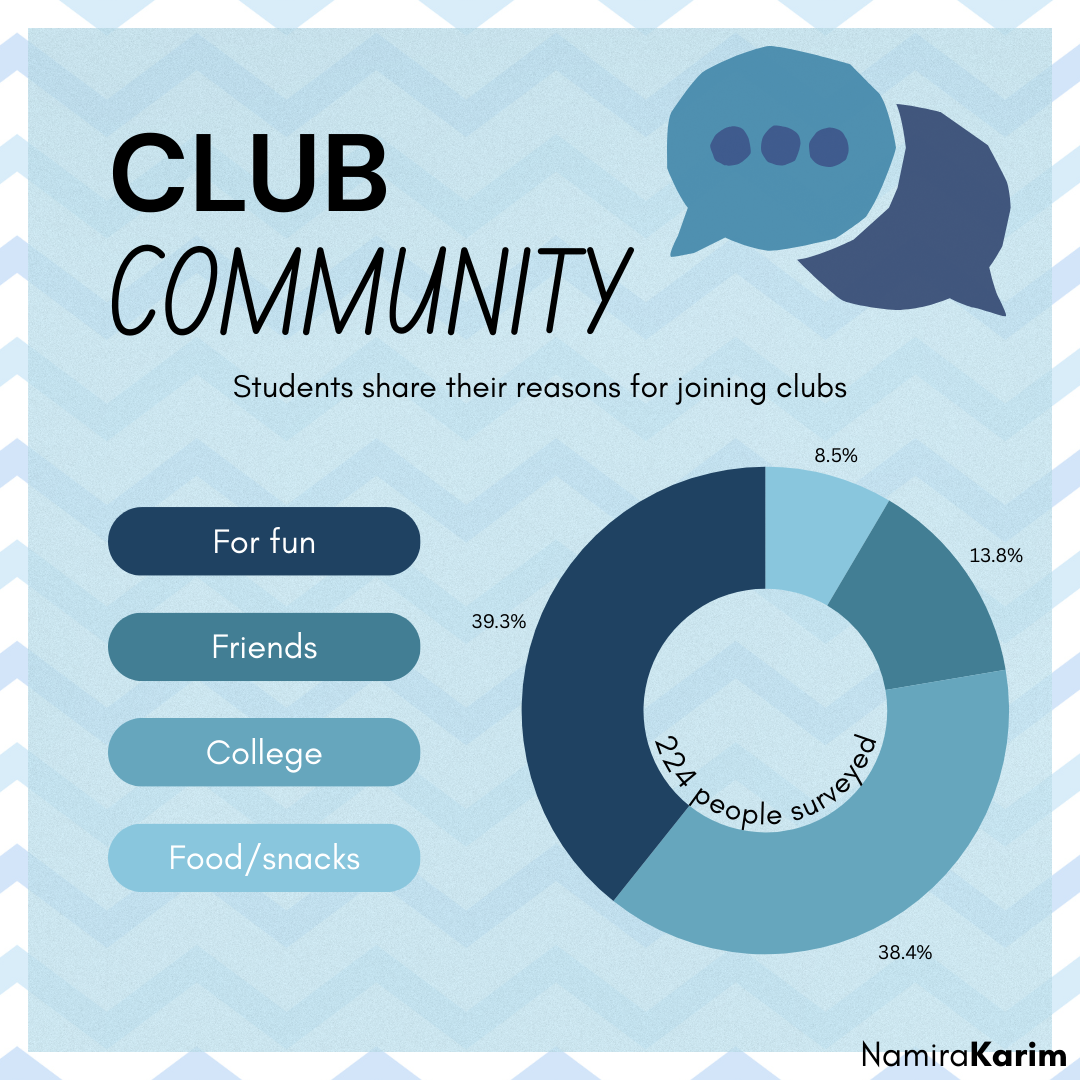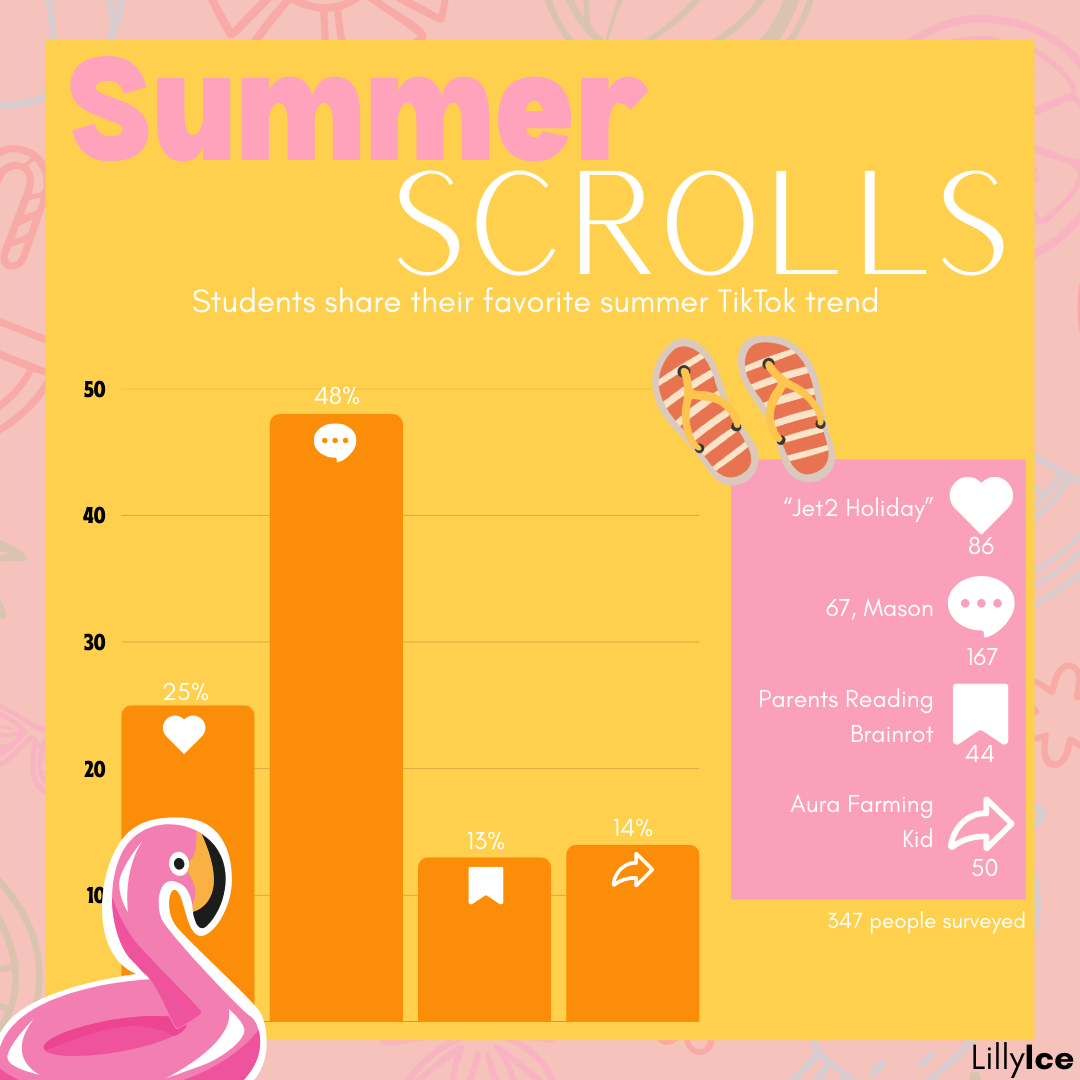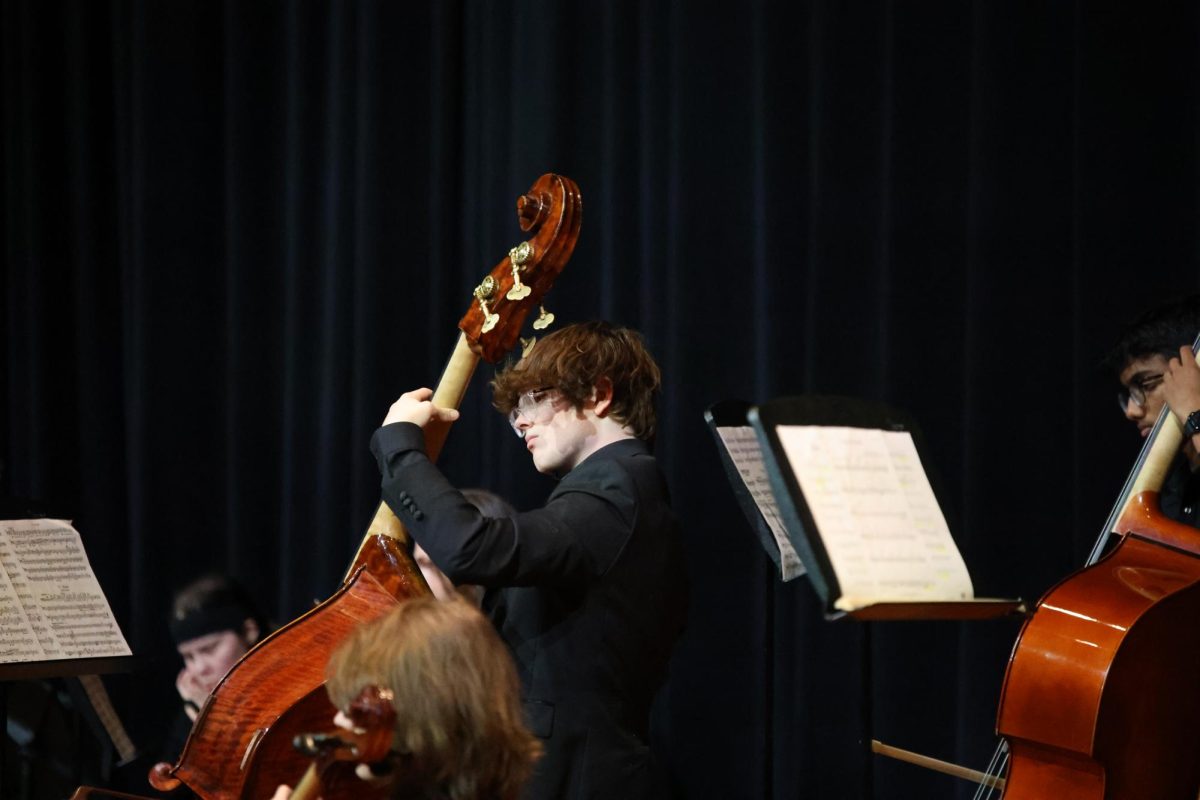Although janitor Brian Hansen is instructed to recycle because of the campus being a “green” school, he would do it anyway.
“For the sake of my kid’s future,” Hansen said.
Despite this dedication the custodial staff can’t do it alone, and there’s one material that seems to be difficult for students to recycle: plastic.
“Here, the recycling bins are more convenient for paper,” sophomore Emily Dixon said. “But you have to clean plastic bottles so a lot of people don’t bother.”
“For the sake of my kid’s future,” Hansen said.
Despite this dedication the custodial staff can’t do it alone, and there’s one material that seems to be difficult for students to recycle: plastic.
“Here, the recycling bins are more convenient for paper,” sophomore Emily Dixon said. “But you have to clean plastic bottles so a lot of people don’t bother.”
This obstacle is what makes plastic one of the fewest materials recycled. When coupled with the fact that plastic is also one of the most frequently manufactured products, this becomes a big concern. So much is being made and so little reused.
“Students recycle, but not as much as they should,” founder of the Environmental Club Lauren Tobin said, “they don’t know what can and can’t be recycled and how to prepare it.”
“Students recycle, but not as much as they should,” founder of the Environmental Club Lauren Tobin said, “they don’t know what can and can’t be recycled and how to prepare it.”
Tobin thinks that the first step to increasing the amount of plastic recycled is educating students on the appropriate way to do so. Earth911.com advises that individuals first remove caps, rinse bottles and if possible, crush the container to save space. Unfortunately, it’s just so much easier and quicker to throw bottles in the trash.
“It would make my job easier not to recycle, but I don’t do that because it’s the incorrect thing to do,” Hansen said.
So despite the work, Hansen believe that it’s the right thing to do and that most of the kids here understand that responsibility.
“Maybe if we told students that they have to recycle or they don’t get to eat, then it would be successful,” sophomore Justin Hicklin said.
So despite the work, Hansen believe that it’s the right thing to do and that most of the kids here understand that responsibility.
“Maybe if we told students that they have to recycle or they don’t get to eat, then it would be successful,” sophomore Justin Hicklin said.
